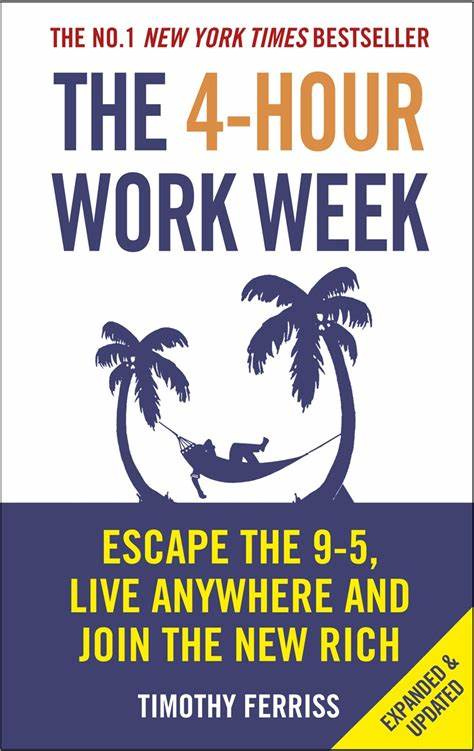The art of non-finishing
And more atomic ideas on productivity
I have always felt guilty about not finishing the books/articles/podcasts I started. But then, one of the well-researched facts is that in order to be super productive, one needs to practice the art of non-finishing.
Which also means you can skip reading this newsletter 😎.
Coming back to the theme of this month (i.e. Productivity), it’s hard to not talk about a book which brings to you actionable (debatable) notions on productivity, i.e. The 4 hour work week.
Whether your dream is escaping the rat race, experiencing high-end world travel, earning a monthly five-figure income with zero management, or just living more and working less, this book is the blueprint.
Presenting to you, 5 atomic ideas from the book The 4-Hour Work week by Tim Ferris.
The New Rich are defined by a more elusive power than simple cash—unrestricted mobility.
To be productive
Identify the few critical tasks that contribute most to income (Pareto’s Law: 80% of the outputs result from 20% of the inputs)
Shorten work time to limit tasks to the important (Parkinson’s Law, i.e. the tendency for the amount of work required for something to increase so that it consumes any amount of time that may be allotted to it.)=-]
The W’s you control
Money is multiplied in practical value depending on the number of W’s you control in your life:
What you do
When you do it
Where you do it
With whom you do it.
Mediocrity and happiness
99% of the people in the world are convinced they are incapable of achieving great things, so they aim for the mediocre.
Competition is strong for realistic goals.
Excitement is the more practical synonym for happiness, and it's the thing that you should pursue.
Boredom is the enemy, not failure.
Interruptions: The three main offenders
An interruption is anything that prevents the start-to-finish completion of a critical task.
Time wasters. Things that can be ignored with little or no consequence
Time consumers. Repetitive tasks or requests that need to be completed but often interrupt high-level work
Empowerment failures. When someone needs approval to make something small happen.
How to fix interruptions
Create systems that limit your availability and deflect inappropriate interruptions. For example, replacing a meeting with a brief email.
Batch activities to limit costs and to create more time.
Set autonomous rules with regular reviews of results. This prevents creating a decision bottleneck.
Dreamlining
It means applying timelines to what most would consider dreams:
The goals shift from ambiguous wants to defined steps.
The goals have to be unrealistic to be effective.
It focuses on activities that will fill the vacuum created when work is removed. Living like a millionaire requires doing interesting things and not just owning enviable things.
Happy non-finishing!
ashish.




